SEO and our search patterns have changed a lot over the past year, leading to a decrease in organic traffic and dozens of LinkedIn posts calling organic traffic a vanity metric. Let’s review the KPIs (besides organic traffic!) that Obility is tracking to measure SEO and Generative Engine Optimization (GEO) performance.
I. AI Overviews
One of the most visible signs of the impact of AI on SEO is AI overviews and presence in AI overviews is a big measure of GEO success. This can take different forms:
- How many of your target keywords are ranking in AI overviews?
- What percentage of your keywords on page 1 are ranking in AI overviews?
- How many AI overviews do you and your competitors rank in?
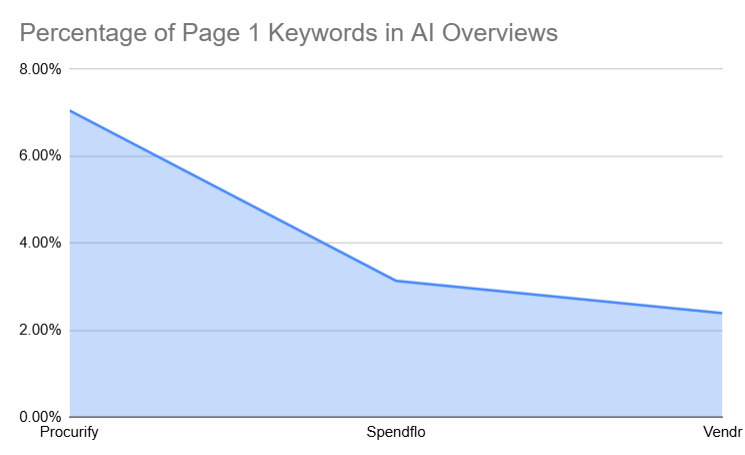
Once we have the data for you and your competitors, we’re able to do additional research on the what and why behind AI overviews:
- What type of content performs best in AI overviews?
- What keywords and keyword types are most present in AI overviews?
- What AI overviews are your competitors ranking in and you’re not?
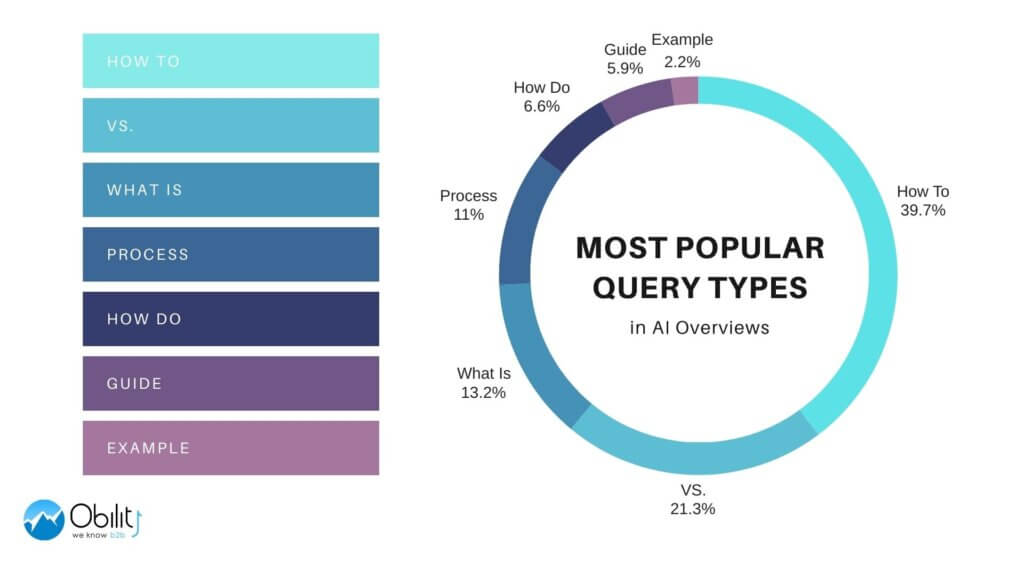
II. Keyword Clusters Performance
The second KPI we measure is keyword clusters performance.
Tracking individual keyword rankings is no longer sufficient. Because both traditional and AI search engines favor in-depth, well-researched content Obility has been recommending a content collection approach that marries TOFU, short-tail keywords, and BOFU, educational keywords, and is following a similar approach for reporting.
Take for example “identity fraud management”. “Identity fraud management” is our primary, top-of-the-funnel keyword: our client rank in the SERP snippet and is cited twice in the AI overview – great!
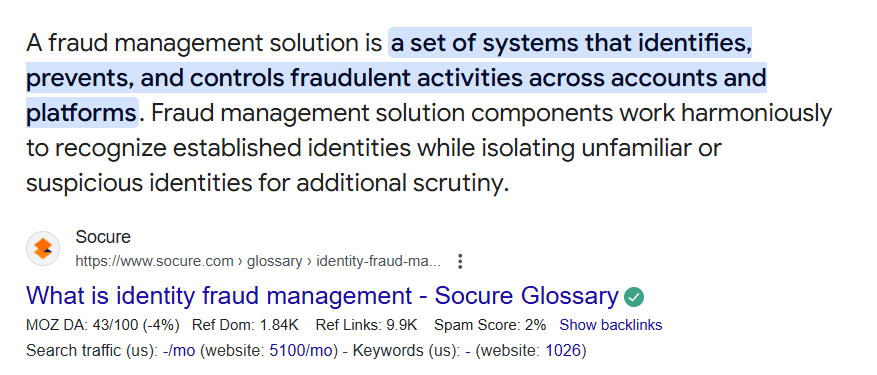
Now we’re going to look deeper and see where our client rank in the traditional SERP and the AI search engines for variations of this keyword such as “identity fraud solutions”, “how to prevent identity fraud”, “what is identity fraud prevention”, “is my organization at risk for identity fraud”, “how to identify the signs of identify fraud” etc. You’ll notice that I’m including more conversational, long-tail keywords since this is how people search in AI search engines.
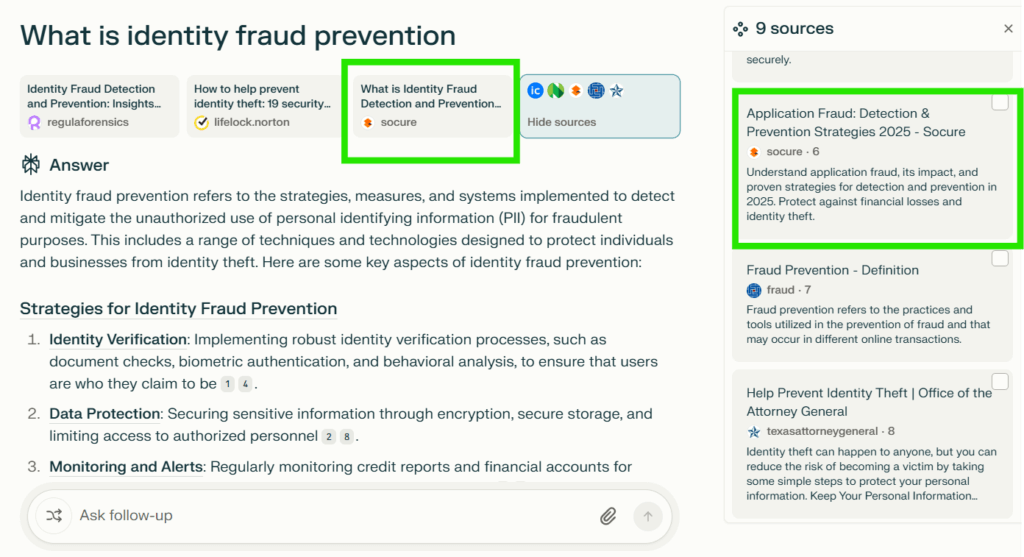
III. User Experience Metrics
User experience has always been an important KPI for SEO, but even more so now that we now that the number of organic visits is less relevant than it used to be.
The goal of user experience measurement is pretty straightforward: we want to know how users behave once on our clients’ websites and assess the quality of the traffic. To do so, we’re looking at:
- User engagement
- Session duration
- Number of pages per sessions
- Exit rate
IV. Key Events and Conversions
One of the best ways to understand your audience and assess your organic performance is by tracking full-funnel engagement and ultimately, pipeline and revenue. Obility sets up granular conversion tracking for all its clients to measure user engagement at every step of the funnel.
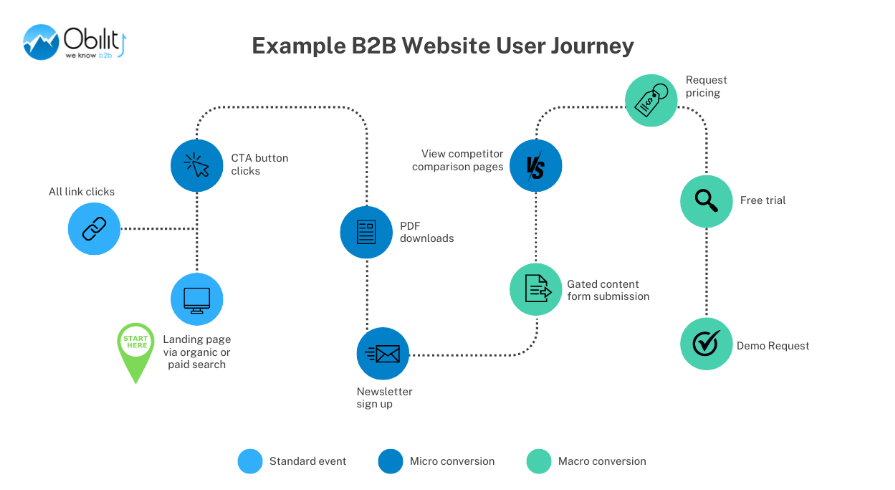
Obility also reports on the performance of all website behaviors indicating an interest in our clients’ solutions, such as:
- Signing up for a newsletter
- Downloading a gated or non-gated asset
- Signing up for an upcoming webinar
- Asking for a demo
- Visiting a competitor or pricing page
- Reaching out to the sales team

V. Referral From AI Search Engines
At the moment, this is one of the best way to measure the traffic and conversions coming from AI search engines.
With the AI search engine referral report, Obility is looking at:
- Which AI search engines are citing/linking to our clients’ websites?
- How is the referral traffic growing over time?
- What does user experience look like for users coming from AI search engines?
- Is AI referral traffic leading to conversions?
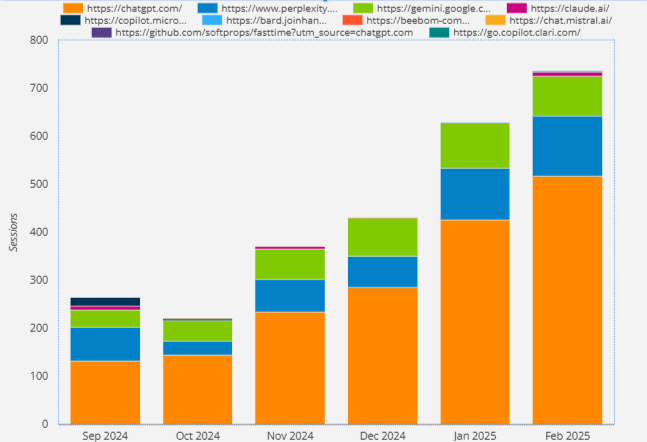
VI. Answer Search Presence
Once we know how much traffic our clients are getting from AI search engines, we’re reviewing AI search engines for more information.
A manual review of your search presence in Perplexity, ChatGPT, and other AI search engines is currently the only way to understand how you and your competitors are being referenced by answer search. See below an example for our client Autodesk, a Perplexity search on “construction management trends” revealed that Autodesk was cited twice!


To recap, here are the KPIs you can expect to see from Obility in your future reports:
- AI overviews presence over time for you and your competitors
- Keyword clusters ranking in traditional search engines and AI search engines
- User experience metrics
- Key events and conversions
- AI search engine referrals, including traffic, conversions, and user experience
- Answer search presence for your top target keywords
Want to learn more about GEO and become a GEO expert yourself? Head to our GEO resource center and take our GEO certification!
